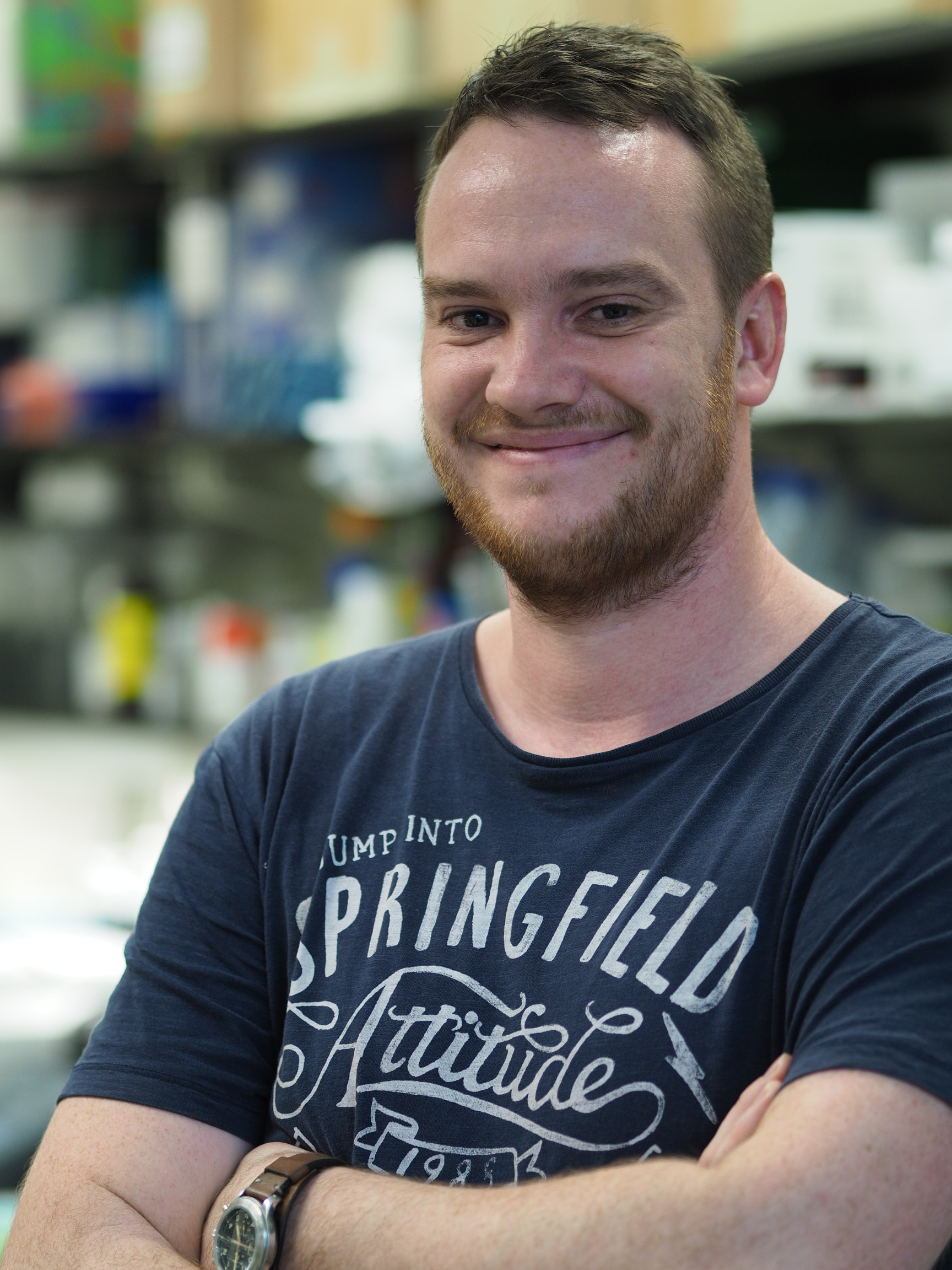Current Research Interests in the Department of Physiology
Alcohol & Chronic Comorbidities |
|
|
Patricia E. Molina, MD, PhD
|
Current work in our laboratory is focused on understanding the biomedical consequences of alcohol abuse on outcomes from traumatic injury and HIV infection. |
|
Liz Simon Peter, BVSc, PhD
|
Research in our laboratory focuses on mechanisms that regulate proliferation and differentiation of stem cells. Using animal models, we are studying epigenomic interactions that impair stem cell function contributing to dysregulated repair, regeneration and function. We are specifically interested in the dysregulation of skeletal muscle stem cell signaling that alters the fate of these cells in insults including alcohol use, HIV and disuse muscle atrophy. Our laboratory utilizes in vivo approaches, including models of alcohol administration and disuse atrophy; cell culture systems; and a wide array of molecular biology techniques to study genetic and epigenetic changes that contribute to dysfunction. Our ultimate goal is to develop epigenomic-targeted therapeutic and lifestyle interventions that improve muscle function and quality of life in aging or chronic diseases. The lab has also developed close collaborations within the department and at LSUHSC to investigate epigenomic mechanisms in metabolic dysregulation, and HIV disease. |
|
Robert Siggins, PhD
|
Research in my laboratory focuses on understanding the mechanisms leading to CD8+ T cell immunosenescence. We are currently examining the role of alcohol in the setting of HIV in promoting increased T cell activation and senescence, leading to precocious aging. Studies include examining how increased reactive oxygen species and mitochondrial damage lead to an immunosenescent phenotype. We have developed multiple flow cytometry based assays combined with downstream molecular analysis to examine these mechanisms. |
Cardiovascular |
|
|
Jason Gardner, PhD
|
Our research is primarily focused on elucidating the mechanisms underlying cardiac and vascular dysfunction, with a particular emphasis on adverse extracellular matrix (ECM) remodeling that contributes to the progression of congestive heart failure. Current areas of investigation include:
To address these questions, our laboratory employs a range of rodent models that simulate various forms of cardiac stress and environmental exposure, including pressure and volume overload, hypertension, chronic and binge alcohol intake, and vaping. We also utilize primary adult cardiac cell cultures to investigate molecular pathways involved in ECM remodeling and cardiac dysfunction. |
|
Janos Paloczi, PhD |
Our research aims to investigate the intricate crosstalk between the gut and heart in alcohol misuse-related pathologies. By employing a multidisciplinary approach, including echocardiography, cardiac pressure-volume catheterization, laser speckle contrast imaging, cell culture models, RNAscope, histology, or other in vitro techniques, we strive to unravel the complex interplay among gut bacteria-derived substances, cardiovascular endocannabinoids, and dysfunction associated with alcohol misuse. Understanding this relationship is crucial, as endocannabinoid signaling has significant impacts on cardiac performance, vascular tone, and inflammation. Our findings will contribute to a deeper understanding of the pathophysiology involved, potentially identifying novel therapeutic targets for mitigating cardiovascular dysfunction associated with the gut-heart axis in individuals with alcohol use disorder. |
Neuroscience |
|
|
Elizabeth Avegno, PhD
|
Brain Stress and Reward System Interactions in Alcohol Dependence. The neural adaptations that define excessive alcohol drinking in alcohol dependent individuals may include interactions between mesolimbic reward circuits and brain stress circuits. We are currently characterizing the ventral tegmental area (VTA) – central amygdala (CeA) circuit in both mice and rats by combining retro- and anterograde tracing, immunohistochemical, electrophysiological, and optogenetic techniques. Chronic intermittent exposure (CIE) to ethanol vapor is used to induce dependence in both mice and rats, and ongoing experiments are investigating alterations in this circuit following alcohol dependence, as well as the role of this circuit in alcohol dependence-associated behaviors. Effects of Early Life Adversity and Adolescent Alcohol Use on Neural Circuits. Early life stress (ELS) exposure and early initiation of alcohol drinking are both independently associated with an increased risk of developing alcohol use disorder (AUD) in later life in humans. ELS increases alcohol consumption in adolescent humans, and given the existing relationship between earlier age of onset of drinking and increased propensity to develop AUD in adulthood, ELS and adolescent drinking may have additive effects on alcohol drinking and the risk of developing AUD in adulthood. Previous research has focused on the effects of adolescent alcohol exposure on the sensitivity of VTA neurons to ethanol. Ongoing research interests continue to investigate neural adaptations following ELS and/or adolescent alcohol exposure in both brain stress and reward circuits. |
|
Scott Edwards, PhD
|
Research interests in our laboratory center around the investigation of neurobiological changes associated with altered motivational systems in drug and alcohol dependence. Our research strategy is to first determine alterations in neuronal signaling following excessive drug or alcohol use, and then to investigate which neuroadaptations are most critically involved in driving excessive drug intake. A closely associated goal is to understand signaling changes induced by re-exposure to drug- or stress-paired contexts and how these processes may contribute to relapse and other motivational disorders. Finally, our most recent focus is on the interaction of addiction and chronic pain. Employing animal models of these conditions, we are currently investigating how persistent inflammatory pain alters central reinforcement circuitry and motivated behavior. Our studies primarily measure protein- and phosphoprotein-level neuroadaptations in brain centers responsible for the establishment and maintenance of the addicted state. We are able to manipulate molecular targets within specific brain regions through a variety of technologies, including viral-mediated gene overexpression and knockdown strategies. These projects involve close collaboration with distinguished LSUHSC and national investigators. |
|
Nicholas W. Gilpin, PhD
|
My lab uses animal models to identify the neurobiological processes underlying alcohol and substance misuse, pain, and traumatic stress reactivity. Much of my lab’s effort goes toward understanding the mechanisms that underlie highly comorbid psychiatric and neurological disorders, for example drug effects on pain-related outcomes or traumatic stress effects on drug use. To achieve this, we use a combination of behavioral pharmacology, circuit based approaches, slice electrophysiology, anatomical tracing, and molecular approaches. The overall goal of the lab is to improve human health by increasing our understanding of psychiatric and neurological diseases. Dr. Gilpin is also the Director of the LSUHSC Alcohol & Drug Center of Excellence. To learn more about that Center and the work they do, please click here. |
|
Rajani Maiya, PhD
|
Our lab investigates how experience-dependent changes in gene expression drive neuroadaptive processes that contribute to the development of alcohol dependence. We are particularly interested in the neural mechanisms by which repeated exposure to social defeat stress leads to escalated alcohol consumption. To uncover these mechanisms, we employ a combination of cell type-specific and cell type-agnostic approaches. Our toolkit includes advanced molecular and circuit-level techniques including single-nucleus and spatial transcriptomics, activity-dependent tagging of neural ensembles, and cell type–specific manipulation of neural activity using Cre-driver lines and chemogenetics. Through these cutting-edge methods, we aim to unravel how stress sculpts brain circuitry and function leading to maladaptive behaviors. |
|
Amanda R. Pahng, PhD
|
My research interests are in understanding the neurobiological and behavioral interactions of pain and drug abuse liability. Specifically, I am interested in how altered signaling in reward- and pain-related circuitry contributes to excessive drug intake and hyperalgesia (heightened pain sensitivity) in the development of disease states, namely drug addiction and chronic pain. My laboratory has three main areas of research focus. These include: 1) investigating non-opioid alternative pharmacotherapies for chronic pain and pain related to drug misuse (hyperalgesia), 2) investigating the behavioral and neurobiological interactions of fentanyl misuse and chronic inflammatory pain, and 3) investigating the behavioral and neurobiological effects of fentanyl adulterants on drug reward and misuse. My work combines behavioral, pharmacological, molecular, and circuit-based approaches in animal models of opioid use disorder and chronic inflammatory pain. |
|
Stefany Primeaux, PhD
|
The current research in my laboratory focuses on understanding peripheral and central mechanisms leading to obesity and related comorbidities. There are several projects in my laboratory investigating neural, behavioral and physiological factors affecting the susceptibility to developing obesity. These studies include the assessment of fat sensing via the oral cavity in obesity-prone and obesity-resistant rats and the assessment of inflammatory markers on the risk for cardiovascular disease in obesity-prone and resistant rats. We are also interested in the role of the hypothalamic neuropeptide, QRFP, on feeding and other motivated behaviors in male and female rats. |
|
Sydney Vita, PhD |
Our research focuses on the combined impacts of adolescent repeated mild traumatic brain injury (rmTBI) and intermittent alcohol exposure on brain pathology and behavior throughout the lifespan. The adolescent brain is particularly vulnerable to the damaging effects of both TBI and alcohol, which may have lasting consequences. We are particularly interested in understanding how these dual insults contribute to neurobiological outcomes, such as neuroinflammation and blood brain barrier (BBB) dysfunction, as well as behavioral disorders such as anxiety. We also examine how these early-life exposures might influence the development of dementia, given that rmTBI is a known risk factor for chronic traumatic encephalopathy (CTE) and that alcohol misuse has been linked to various forms of dementia. To achieve these objectives, we employ a range of methodologies, including standard biochemical and molecular techniques, such as immunohistochemistry, alongside behavioral assays and advanced imaging technologies like iDISCO+. This multifaceted approach allows us to comprehensively assess the long-term impacts of adolescent brain injuries and alcohol exposure on brain health and behavior. |
Research Facilities on the Downtown New Orleans Campus

Most of the department's faculty members occupy laboratories and offices in the Clinical
Sciences Research Building (CSRB). Faculty conducting research as investigators of
the NIAAA-supported Alcohol Research Center use laboratories in the Clinical Sciences
Research Building (CSRB).
Investigators in the Department of Physiology enjoy state of the art research equipment
including facilities and instrumentation for cell and tissue culture, RT-qPCR and
Multiplex analysis, flow cytometry, and innovative animal behavioral testing. The
Health Sciences Center Core Laboratories contain facilities for proteomic analysis,
peptide synthesis and microsequencing, antibody production, mass spectroscopy, fluorescence-activated
cell sorting, and phosphorimaging. An Image Analysis facility includes a confocal
microscope as well a molecular modeling workstation.
Dedicated office space for our graduate students and postdoctoral fellows is equipped
with personal computers for student use with high-speed internet and a range of software
for scientific research applications, including statistical analysis and graphing
software.








![elizabeth headshot[1130]](/faculty/images/elizabeth%20headshot%5B1130%5D.jpg)






